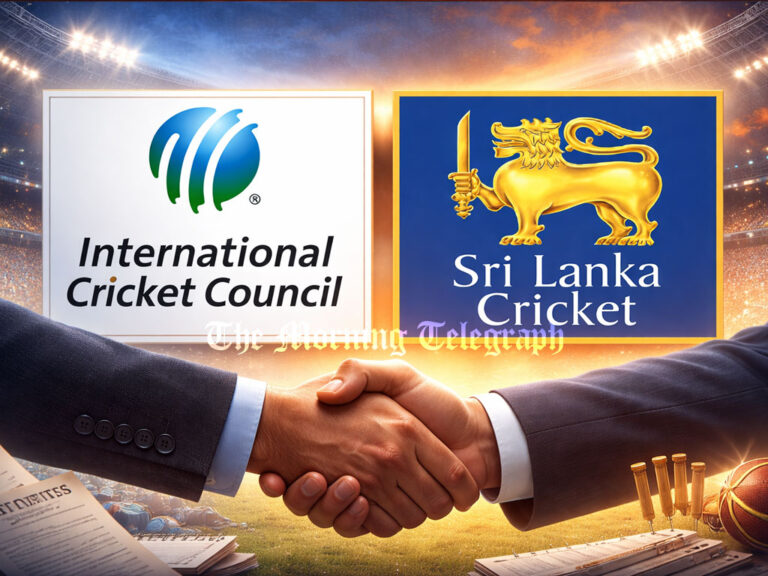
History may judge harshly those who traded away the nation’s lifelines for vague promises and short-term political gain. The recent Memoranda of Understanding (MoUs) signed by Sri Lanka with India and the United Arab Emirates go far beyond diplomatic cooperation—they mark a serious surrender of sovereignty and national control disguised under the cloak of “mutual benefit” and “strategic partnership.”
These agreements, presented as blueprints for developing Trincomalee into an energy hub and linking the national grid to India via a high-voltage power line, lay out a chilling vision of Sri Lanka’s political and economic dependence on foreign powers.
Trincomalee JV: A Trojan Horse?
One of the most controversial aspects of the Trincomalee energy hub MoU is the formation of a Joint Venture Company (JV Company), comprised of the Indian Oil Corporation Limited (IOCL), Sri Lanka’s own Ceylon Petroleum Corporation (CPC), and the Abu Dhabi Ports Group (AD Ports).
The MoU mandates that these “Authorised Agencies” form the JV and finance projects through a mix of debt and equity. On the surface, this suggests cooperation. In truth, Sri Lanka is turning over critical national infrastructure to foreign entities, ceding control of long-term strategic development.
The supposed “equity sharing” is equally deceptive. The claim that each party contributes equally ignores the vast disparity between IOCL and AD Ports—wealthy and resource-abundant—compared to the struggling and under-resourced CPC. Equity in name alone does not guarantee equal influence or control. Sri Lanka, already reeling from economic mismanagement, stands to be little more than a symbolic shareholder.
National Resources for Foreign Gain
More alarming is the burden these MoUs place on Sri Lanka itself. The country is required to provide land, rights of way, pipeline corridors, statutory clearances, and pre-construction infrastructure—all at its own expense.
Worse still, the Sri Lankan government must provide security for all personnel and infrastructure during and after construction. In effect, the Sri Lankan taxpayer will be funding not only the groundwork but the protection of foreign profits.
A Pipeline of Asymmetry
The proposed petroleum product pipeline is framed as a two-way conduit. But the MoU reveals a deeper imbalance. While India is free to import from Sri Lanka, any Sri Lankan exports must first receive India’s approval. This effectively grants India a veto over Sri Lanka’s international trade via this pipeline.
Moreover, India has placed strict conditions that prohibit any Sri Lankan export to India if the generating facility is owned, directly or indirectly, by a third-party state or company that doesn’t share a border with India. In plain terms: India is asserting legal and economic jurisdiction over Sri Lanka’s energy exports.
Taxation and Legal Immunity
Sri Lanka’s fiscal sovereignty is further eroded by tax exemptions. All equipment and machinery from India and the UAE must be allowed to move freely without import taxes. Any new taxes introduced will be absorbed by the JV Company—meaning no revenue for Sri Lanka, but continued expenses for its citizens.
The government is also compelled to expedite customs and immigration for foreign workers, reducing national borders to bureaucratic inconveniences.
Justice Abandoned
Even more troubling, Sri Lankan courts are denied jurisdiction over foreign personnel. The MoU forbids any legal action against Indian or UAE partners, granting them near-total immunity for actions conducted “in good faith” within Sri Lankan borders. Not under international law, but Sri Lanka’s own hand.
Adding insult to injury, the agreements are to be governed not under Sri Lankan law but under English law—a foreign legal system—further surrendering the nation’s judicial autonomy.
Escape Impossible
The so-called “termination clause” allows for just 30 days’ notice, but with no assurances that initiated projects can be halted without penalties. Despite being described as “non-binding,” the MoUs obligate immediate land clearance and pre-construction work—actions that can’t be easily reversed without dire political and economic fallout.
The Electricity Trap
The HVDC interconnection project with India is no better. Marketed as a boost to energy trade, it entrenches Sri Lanka’s dependence on Indian electricity, undermining any notion of future energy independence.
Foreign contractors are granted full exemption from taxes—customs, royalties, VAT, and more—while ordinary Sri Lankans continue to suffer under the weight of inflation and austerity. Indian workers will enjoy legal immunity and swift clearances, further marginalising local oversight and national interests.
A Legal Maze That Favors Foreigners
The MoU gives foreign governments the right to oversee the movement of materials and people for the project, stripping local regulatory bodies of any meaningful authority. Even the final legal jurisdiction is ambiguously defined—each country will apply its own law to the part of the project occurring on its soil. For Sri Lanka, this means enforcement against foreign wrongdoers within its territory may be impossible.
A Deal with No Dignity
Signed in April 2025, these MoUs represent a dark chapter in Sri Lanka’s modern history. They offer not development, but dependency. Not partnership, but submission. Not cooperation, but exploitation.
Sri Lanka is being transformed from a sovereign nation into an outpost of foreign capital, with neither control over its resources nor the dignity to make independent decisions on the global stage.
This is not diplomacy. It is legalised theft masked as strategy. If these MoUs are left unchallenged, Sri Lanka’s ports, pipelines, power grid, and sovereignty will become mere appendages of foreign governments with no regard for the welfare of its people.
History will not be kind to those who failed to act. If Sri Lanka’s leaders do not rescind, renegotiate, or annul these agreements, they risk leading the nation into irreversible decline. The time to act is now.
SOURCE :- SRI LANKA GUARDIAN




